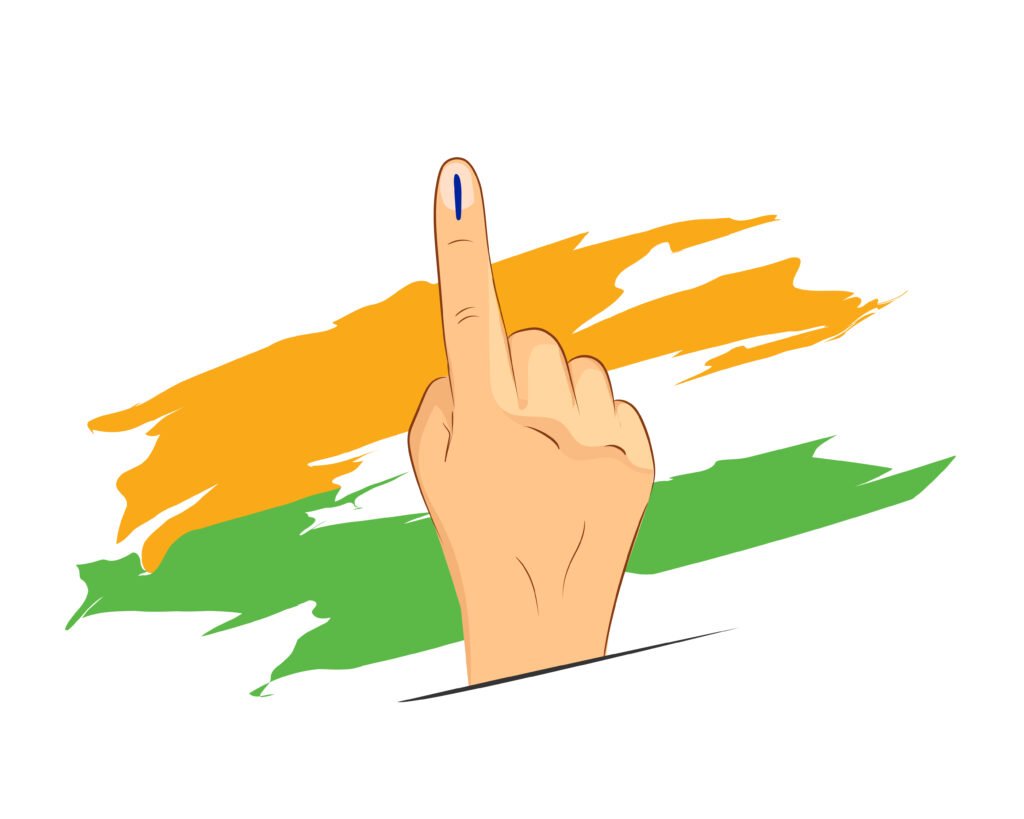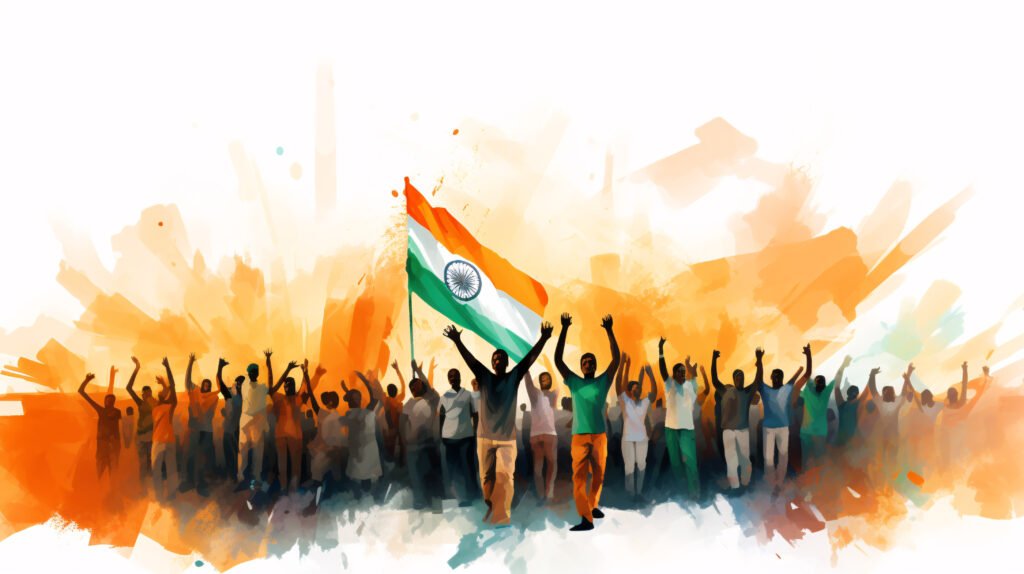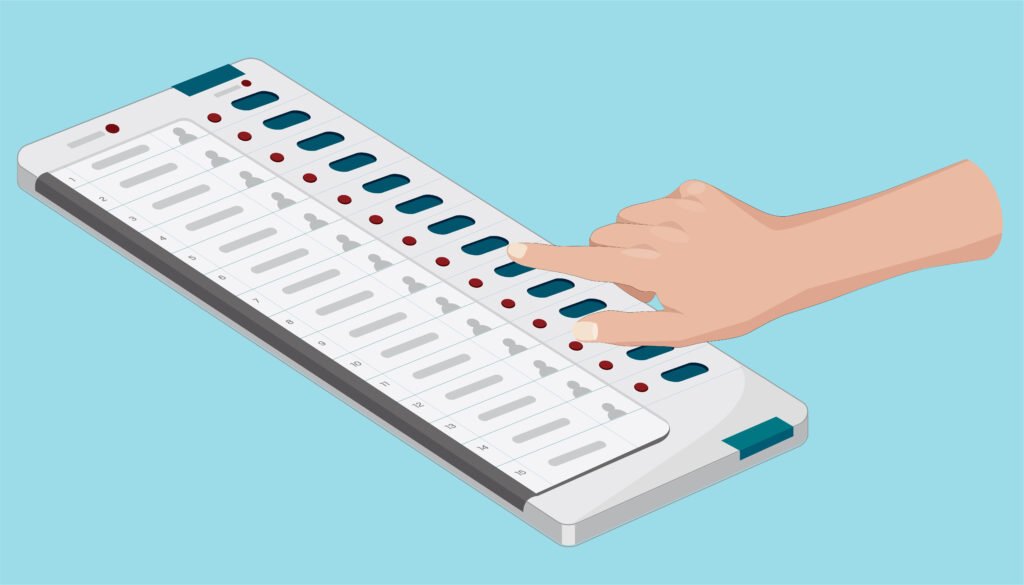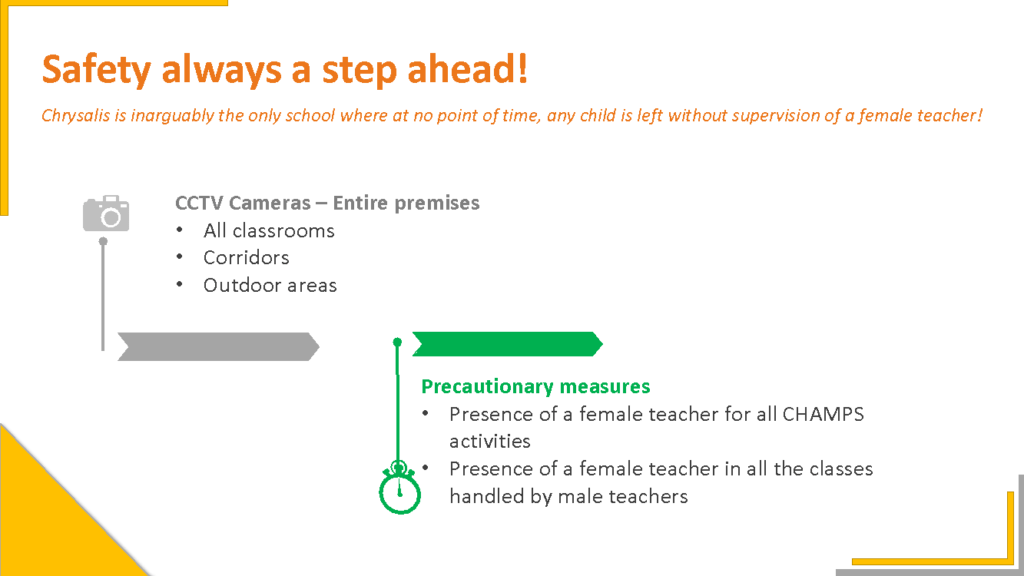
Understanding the electoral process is crucial for first-time voters in India. It starts with registering yourself as a voter and verifying your details. Study the political parties and candidates before making a decision. Get to know how to vote easily and where the polling booth is located. Ensure that you have valid identification documents on Election Day. Consider what is important to you when you pick candidates who align with your values. Also, know electoral rules and regulations so as not to encounter issues during voting day or anything of that kind. Finally, responsibly take part in voting knowing well that it’s shaping the country’s future.
Lok Sabha Elections in India 2024

The Lok Sabha elections in India are the fulcrum of democracy, a constitutional prerogative and controlled by the Election Commission. The first-time voters are important for the future of the country. Voter registration, issuance of voter ID cards and electronic voting machines (EVMs) are used in polling booths across constituencies. Right from candidate nominations to result declaration, the Election Commission ensures fair conduct. Through the democratic process, citizens exercise their right to vote thus influencing government formation and the country’s direction.
Electoral Process in India
Explanation of the electoral process in India
- India is a parliamentary system whereby representatives to parliament (lok sabha) are elected through general elections by citizens.
- The whole electoral process is overseen by the Election Commission of India (ECI) who have responsibility for ensuring that it is free and fair.
- Elections should be held at regular intervals generally after every five years unless something makes the government dissolve earlier than expected.
Voter registration procedures
- Voting-eligible citizens must register themselves as voters with their respective constituency’s electoral roll.
- Voter registration can either be done online using the National Voters Service Portal(NVSP) or physically in Voter Registration Centers provided.
- Necessary documents like proof of identity and address must be submitted before eligibility for voting can be determined.
Importance of voter ID cards
- Voters’ ID cards act as a primary identification document during voting times.
- They carry vital information such as; the name of a voter, photograph, booth details etc.
- These ensure that only people who ought to vote do so, hence minimising electoral fraud cases witnessed before.
Knowing Your Rights and Responsibilities

Overview of voting rights for Indian citizens
- The democratic right to vote for Indian citizens is enshrined under the constitution Indian citizen’s right to vote during democratic elections.
- Reasons why one should cast his/her vote while they have a chance
- Legal provisions protecting voting rights in India.
Responsibilities of voters on election day
- Getting to the polling station early enough.
- Having a valid voter ID.
- Knowing who you are voting for and their manifesto.
- Casting your vote responsibly without influence from any other person.
Finding Your Polling Booth
You can find out where your polling booth is for the upcoming elections by following these steps:
- Look up the Election Commission of India’s website or use their mobile app.
- Find out the Voter Information” or “Polling Booth Locator” section.
- Fill in details like state, district, assembly constituency etc.
- The website or app will show you where your polling booth is located and how to get there.
- Note down the date and time of voting so that you do not miss it.
Understanding Electronic Voting Machines

Being an essential tool in Indian elections, Electronic Voting Machines (EVMs) secure and facilitate voting processes. They did away with the previous manual system of balloting hence minimising mistakes, booth capturing and speeding up counting. They are reliable, accurate and transparent to keep elections’ integrity intact. Voters press a button next to the symbol of the candidate they prefer whereby their vote is recorded electronically it is a technology that enhances the democratic process as well as builds trust in electoral outcomes.
Tips for First-time Voters
1. Familiarise Yourself with the Electoral Process: Understand how elections work in India, including voter registration, polling stations, and the voting process.
2. Obtain a Voter ID Card: Ensure you have a valid voter ID card, which serves as your identification during elections.
3. Research Candidates and Issues: Take time to learn about the candidates contesting in your constituency and the key issues they address.
4. Know Your Voting Rights: Be aware of your rights as a voter, including the right to a secret ballot and assistance if needed.
5. Plan Your Voting Day: Know the date and location of your polling station, and plan your schedule accordingly to avoid missing out on casting your vote.
FAQ:
To obtain your voter ID in INDIA fill Form 6 online or offline through the website or office of Election Commission [EC].
The eligible age to vote in Indian elections is 18 years and above.
Log onto the National Voters’ Service Portal (NVSP) website or approach the Electoral Registration Officer(ERO) of your area to enrol yourself as a voter in INDIA.


